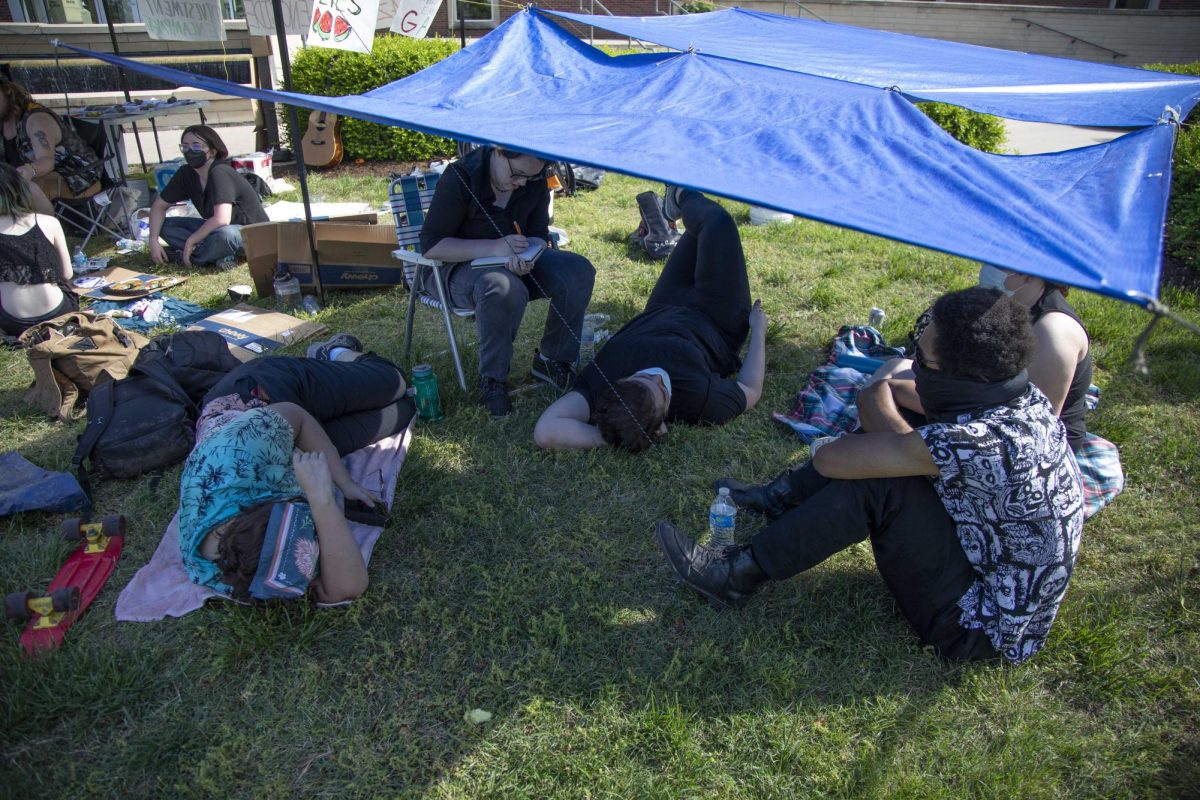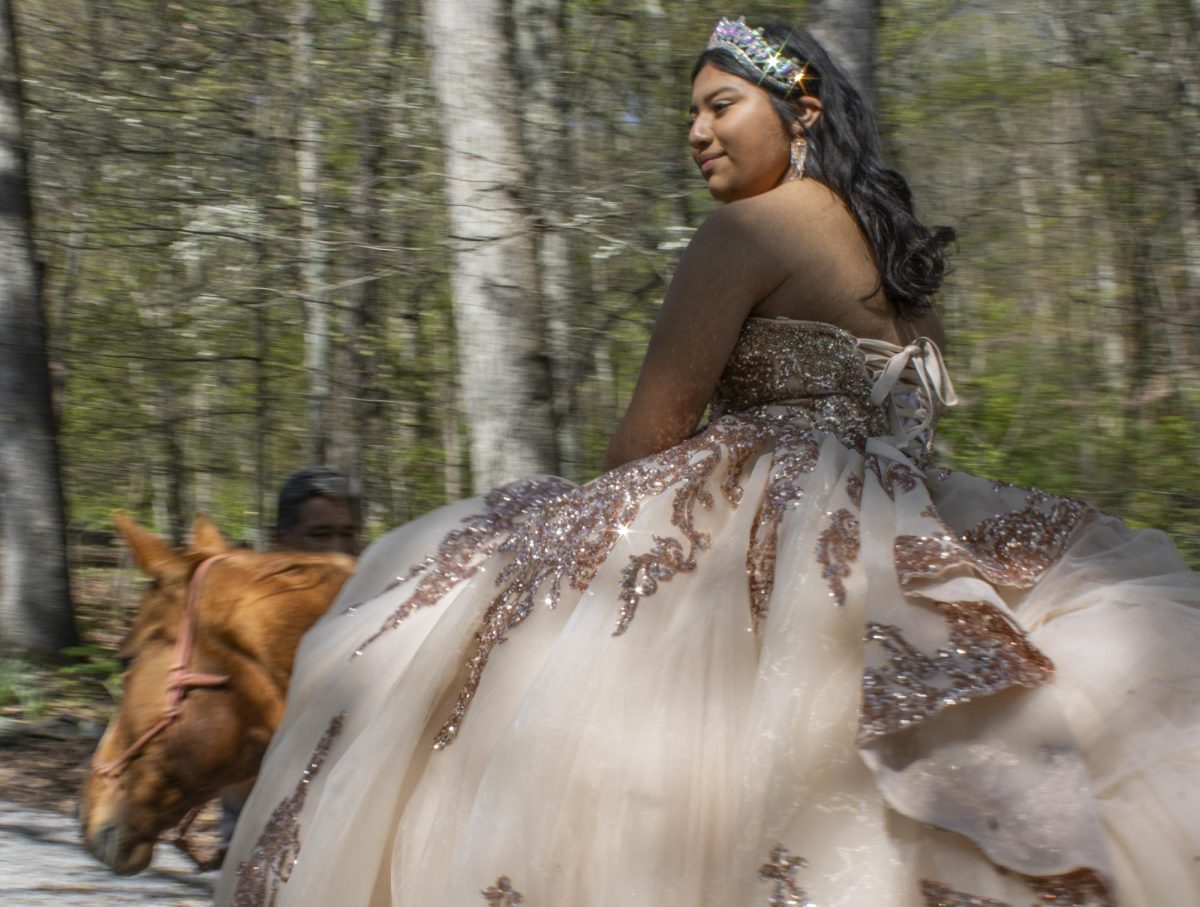While cannabis hemp is known primarily for its leaf usage, the fabric industry is popularizing the textile which is more than 7,000 years old.
November 7, 1994
Hemp fabric, which has been used for apparel purposes for centuries, is currently produced in western and eastern European countries and can be found in metropolitan areas and around college campuses in the forms of hats, bracelets and T-shirts throughout the United States.
Although hemp cannot legally be grown and cultivated in the states, designers and stores may import the fabric or items made from it.
Rob Kampia, coordinator for the National Organization for the Reform of Marijuana Laws, said although the fabric will never be able to compete against cotton, it is increasing in popularity and is a $50 million industry.
Advertisement
He said prices on the clothing are expensive compared to other natural fibers in the same class, such as linen and ramie. A hemp hat, sold by street vendors or metropolitan shops, is usually about $18.
Hemp can be grown in almost any climate and has a short growing season, he said.
Kampia said because the apparel is made from the stalk of the plant, all products carry labels stating Warning do not smoke, but that does not stop activists from feeling excited they have accomplished something.
Hemp activists are real excited because the plant they have been smoking they can now wear, he said. It is great for consumers because you can’t smoke it and the drug warriors won’t go crazy over it.
He said the fabric has a denim-like texture, is heat and water resistant and depending on the weave, blocks ultra-violet rays better than most industrial, manufactured fabrics.
The moral of this story is if we could grow hemp in this country, clothes would last a lot longer, he said.
Michelle Trueblood, an SIUC graduate student and textiles instructor, said the whole idea of hemp clothing is controversial and is used as a marketing technique to attract college students.
Advertisement*
I think this is more of a trend if marijuana was legalized this stuff would not be as popular, she said. If hemp clothing is to compete in the fabric industry it will have to
see HEMP, page 12
overcome a lot of stereotypes, because there is a lack of information and a lot of misconceptions out there.
Jim Garofalo, director of SIUC’s administration of justice department, said although he does not see a change in the laws in the near future, legalization is a possible step to alleviate officers’ time and money.
It would not be a bad idea to legalize marijuana, because it (the crackdown) wastes law enforcement resources, he said. It (marijuana) is not any worse than a lot of other things out there that are legal, like alcohol.
He said officials are further away from legalization than they were in the 1960s and 70s and law enforcement agencies are against the legalization because it makes marijuana more readily available to the public.
Janice Threw, an SIUC clothing and textiles lecturer, said hemp is naturally durable and has great usability because the first pair of Levi’s and flags were made of it. She said hemp was a natural fiber growing in the U.S. before cotton.
Within the past three years magazines such as Real goods and other eco-friendly alternative publications advertise and sell hemp products, Threw said.
We’re beginning to hear about it all the time, she said. There’s no reason it could not be used effectively (as a fiber), but it’s a matter of keeping it in the textile industry.
Drew Hendricks, SIUC’s NORML chapter president, said in 1989 the Cannabis Action Network did research finding that hemp fabrics last 300 times longer than others. This information sparked the interest of entrepreneurs who began to produce and sell garments.
He said activists are beginning to make a living producing the fabric. Hendricks and his girlfriend Beth Krusa, a junior in photography from Bluffs, have hemp bags, shirts and shorts they got as gifts from a store in Texas.
They’re really good on wear and tear, Krusa said. They should sell it around here because the clothes are versatile and heavy like jeans, but can be made into lighter-weight fabrics.
John Birrenbach, founder of the Institute for Hemp in St. Paul, said the majority of people who purchase hemp products are college students and environmentalists.
Birrenbach’s institute educates the public on hemp uses and fights for its legalization.
We want to reestablish cannabis hemp as a commercial product for the American farmer, he said. It has more than 50,000 applications.
Although Minnesota passed a bill in 1991 stating cultivation would be legalized as soon as the federal government passes the importation of seed, people in Kentucky still may be arrested for wearing hemp products.
Moon Garden Gifts, 715 University Ave., above Kinko’s copies, sells hemp bracelets and necklaces for $5 and $10.
Advertisement








